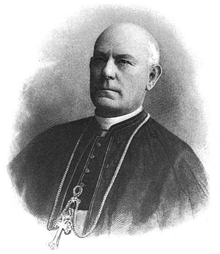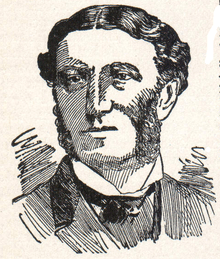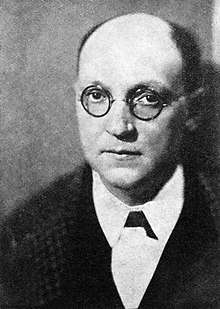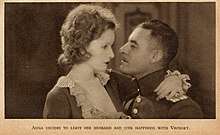
A taste for the best books, as a taste for whatever is best, is acquired; and it can be acquired only by long study and practice. It is a result of free and disinterested self-activity, of efforts to attain what rarely brings other reward than the consciousness of having loved and striven for the best. ~ John Lancaster Spalding

Culture is then properly described not as having its origin in curiosity, but as having its origin in the love of perfection; it is a study of perfection. ~ Matthew Arnold

Culture is at once the expression and the reward of an effort, and any system of civilization which tends to relax effort will suffer a corresponding depreciation of culture. ~ Georges Duhamel
Culture (from the Latin cultura stemming from colere, meaning "to cultivate") is a term commonly used to indicate the set of shared attitudes, values, goals, and practices that characterizes an institution, organization or group, an integrated pattern of human knowledge, belief, and behavior that depends upon the capacity for symbolic thought and social learning, or an excellence of aesthetic taste in the arts and humanities, (also known as high culture).
A
- Cultures are not all equal. We should be ready to proclaim the clear superiority of our culture to one that justifies killing people in the name of God.
- Tony Abbott, The religion of Islam must reform, The Daily Telegraph (December 9, 2015)
- The whole scope of the essay is to recommend culture as the great help out of our present difficulties; culture being a pursuit of our total perfection by means of getting to know, on all the matters which most concern us, the best which has been thought and said in the world; and through this knowledge, turning a stream of fresh and free thought upon our stock notions and habits.
- Matthew Arnold, Preface to Culture and Anarchy (1869)
- Culture is then properly described not as having its origin in curiosity, but as having its origin in the love of perfection; it is a study of perfection.
- Matthew Arnold, “Sweetness and Light,” Culture and Anarchy (1869), p. 7
B
- In 16th-century Italy there lived Lodovico Gonzaga, a 16-year old seminarist who was very fond of playing ball. Once a certain priest passing by wondered if for a future priest the youth was too keen on his pursuit and asked him: "What would you do if you learned that in half an hour the end of the world was coming?" To which Lodovico replied: "I'd play on." According to the Russian thinker Georgy Fedotov, the importance of culture lies in precisely that: we go on playing ball on the verge of Doomsday.
- Vladimir Barsky, Chromaticism (1996)
- Politics is downstream of culture.
- Andrew Breitbart, as quoted in Courrielche: Conservatives' Next Frontier, Daily Wire
C
- The improvement of the soul consists in raising it above what is narrow, particular, individual, selfish, to the universal and unconfined. To improve a man is to liberalize, enlarge him in thought, feeling, and purpose. Narrowness of intellect and heart, this is the degradation from which all culture aims to rescue the human being.
- William Ellery Channing, “Self-Culture” (1838)
D
- Culture is at once the expression and the reward of an effort, and any system of civilization which tends to relax effort will suffer a corresponding depreciation of culture.
- Georges Duhamel, In Defense of Letters (1937), p. 22
F
- Culture is all the things and ideas ever devised by humans working and living together.
- Peter Farb, Man's Rise to Civilization (1968)
- The astonishing cluster of them [geniuses] that appeared in Athens during the fifth and fourth centuries B. C. ...what changed was the culture, which allowed exceptional minds to flourish.
- Peter Farb, Man's Rise to Civilization (1968)
- To say that the invention "was in the air" or "the times were ripe for it" are just other ways of stating that the inventors did not do the inventing, but that the cultures did.
- Peter Farb, Man's Rise to Civilization (1968)
- Religious ideas have sprung from the same need as all the other achievements of culture: from the necessity for defending itself against the crushing supremacy of nature.
- Sigmund Freud, The Future of an Illusion (1927)
G
- Whoever controls the media — the images — controls the culture.
- Allen Ginsberg, as quoted in Brain Power : Learn to Improve Your Thinking Skills (1980) by Karl Albrecht, p. 6
- The way you sustain and improve upon a culture is by fostering a sense of gratitude for what is best about it. You celebrate the good in your story while putting the bad in the correct context.
- Jonah Goldberg, "What’s So Great about Western Civilization" (19 April 2019), National Review.
- Remember, we live in a culture of immediacy. We live in a culture in which simplistic answers override more complicated answers. We live in a culture in which language is reduced to its bare bones. We live in a culture in which language is now in the service of violence.
- Henry Giroux, as quoted in Henry Giroux on His Latest Book — The Terror of the Unforeseen — and How Neoliberal Capitalism Sets the Stage for Fascism (August 19, 2019), Media For Us.
H
- Culture is neither natural nor artificial, neither genetically transmitted nor rationally designed. It is a tradition of learnt rules of conduct which have never been ‘invented’ and whose functions the acting individuals usually do not understand. There is surely as much justification to speak of the wisdom of culture as of the wisdom of nature—except, perhaps, that, because of the powers of government, errors of the former are less easily corrected.
- Friedrich Hayek, Law, Legislation and Liberty, Vol. 3 : The Political Order of a Free People (1979), Epilogue: The Three Sources of Human Values
- When two cultures collide is the only time when true suffering exists
- Hermann Hesse, as quoted in Peter's Quotations : Ideas for Our Time (1977) by Laurence J. Peter, p. 456
- Culture is constituted by human labor, the aesthetic, and the spirit. In this regard, culture is an integrated way of life which shuns false dichotomies between sacred and so-called secular. Human labor denotes a mutuality between base and superstructure. The aesthetic argues for a norm grounded in internal beauty and ethical functionality. And the spirit is the vivifying thread woven throughout all of culture.
- Dwight Hopkins "A Black Theology of Liberation," Black Theology, v. 3, n. 1, January 2005
J
- Our aim is to stop the life cycle of the enemy culture and replace it with our own revolutionary culture. This can be done only by creating perfect disorder within the cycle of the enemy culture's life process and leaving a power vacuum to be filled by our building revolutionary culture.
- George L. Jackson, Blood in My Eye (1971)
- The disdain for culture expressed by Johst and Fanon is not identical, however. Both despise the deceit of culture, but for opposite reasons. For Johst, culture is in itself a fraud, the cheap talk of weaklings; for Fanon, culture deceives by reneging on its promises. Johst and the Nazis hated culture itself; Fanon hated its hypocrisy, a very different notion.
- Russell Jacoby, The End of Utopia (1999), p. 35
- Wenn ich Kultur höre … entsichere ich meinen Browning!
- Whenever I hear of culture ... I release the safety catch of my Browning!
- Hanns Johst, Schlageter. Often misquoted as "When I hear the word culture, I reach for my revolver", and misattributed to other Nazi leaders.
- Whenever I hear of culture ... I release the safety catch of my Browning!
M
- Each form of the sacrosanct was regarded by members of the culture which gave rise to it as a revelation of the Truth.
- André Malraux, in Voices of Silence [Les voix du silence] (1951), Pt. IV, Ch. V
- Our art culture makes no attempt to search the past for precedents, but transforms the entire past into a sequence of provisional responses to a problem that remains intact.
- André Malraux, in Voices of Silence [Les voix du silence] (1951), Pt. IV, Ch. VII
- Culture would seem … first and foremost, to be the knowledge of what makes man something other than an accident of the universe, be it by deepening his harmony with the world, or by the lucid consciousness of his revolt from it. … Culture is the sum of all the forms of art, of love and of thought, which, in the course of centuries, have enabled man to be less enslaved.
- André Malraux, quoted in Malraux : An Essay in Political Criticism (1967) by David O. Wilkinson, p. 153
- The prestige of culture is among the major means by which powers of decision are made to seem part of an unchallengeable authority. That is why the cultural apparatus, no matter how internally free, tends in every nation to become a close adjunct of national authority and a leading agency of nationalist propaganda.
- C. Wright Mills, "The Cultural Apparatus," in The Politics of Truth: Selected Writings of C. Wright Mills (2008)
N
- That is the secret of all culture: it does not provide artificial limbs, wax noses or spectacles—that which can provide these things is, rather, only sham education. Culture is liberation, the removal of all the weeds, rubble and vermin that want to attack the tender buds of the plant.
- Friedrich Nietzsche, Untimely Meditations, as translated by R. J. Hollingdale
R
- Our world is organized in large measure around groups with pervasive cultures.... membership of such groups... greatly affects one's opportunities.... If the culture is decaying, or if it is persecuted or discriminated against, the options and opportunities open to its members will shrink.
- Joseph Raz, Ethics in the Public Domain: Essays in the Morality of Law and Politics (1994), Clarendon Press.
S
- The multitude are matter-of-fact. They live in commonplace concerns and interests. Their problems are, how to get more plentiful and better food and drink, more comfortable and beautiful clothing, more commodious dwellings, for themselves and their children. When they seek relaxation from their labors for material things, they gossip of the daily happenings, or they play games or dance or go to the theatre or club, or they travel or they read story books, or accounts in the newspapers of elections, murders, peculations, marriages, divorces, failures and successes in business; or they simply sit in a kind of lethargy. They fall asleep and awake to tread again the beaten path. While such is their life, it is not possible that they should take interest or find pleasure in religion, poetry, philosophy, or art. To ask them to read books whose life-breath is pure thought and beauty is as though one asked them to read things written in a language they do not understand and have no desire to learn. A taste for the best books, as a taste for whatever is best, is acquired; and it can be acquired only by long study and practice. It is a result of free and disinterested self-activity, of efforts to attain what rarely brings other reward than the consciousness of having loved and striven for the best. But the many have little appreciation of what does not flatter or soothe the senses. Their world, like the world of children and animals, is good enough for them; meat and drink, dance and song, are worth more, in their eyes, than all the thoughts of all the literatures. A love tale is better than a great poem, and the story of a bandit makes Plutarch seem tiresome. This is what they think and feel, and what, so long as they remain what they are, they will continue to think and feel. We do not urge a child to read Plato—why should we find fault with the many for not loving the best books?
- John Lancaster Spalding, Aphorisms and Reflections (1901), pp. 11-12
- One ought not to hoard culture. It should be adapted and infused into society as a leaven. Liberality of culture does not mean illiberality of its benefits.
- Wallace Stevens, in a journal entry (20 June 1899); as published in Souvenirs and Prophecies: the Young Wallace Stevens (1977) edited by Holly Stevens, Ch. 3
T

Cultural products which present foreign wars as the heroic effort of a master race to ennoble mankind are, to the degree they are successful as art, objectively in the interests of imperialists, who are people who make foreign wars against other races for profit. ~ Meredith Tax

Cultural products that present people who have no money or power as innately stupid or depraved, and thus unworthy of money or power, are in the interests of the ruling class and the power structure as it stands. ~ Meredith Tax

Cultural products which present women who do not want to be household slaves or universal mothers or sex objects as bitches or sexual failures objectively aid male supremacy. ~ Meredith Tax
- Cultural products which present foreign wars as the heroic effort of a master race to ennoble mankind are, to the degree they are successful as art, objectively in the interests of imperialists, who are people who make foreign wars against other races for profit.
- Meredith Tax, "Culture is not Neutral, Whom Does it Serve?" in Radical Perspectives in the Arts (1972), p. 15
- Cultural products that present people who have no money or power as innately stupid or depraved, and thus unworthy of money or power, are in the interests of the ruling class and the power structure as it stands.
- Meredith Tax, "Culture is not Neutral, Whom Does it Serve?" in Radical Perspectives in the Arts (1972), p. 15
- Cultural products which present women who do not want to be household slaves or universal mothers or sex objects as bitches or sexual failures objectively aid male supremacy.
- Meredith Tax, "Culture is not Neutral, Whom Does it Serve?" in Radical Perspectives in the Arts (1972), p. 15
- [Culture is] that complex whole which includes knowledge, belief, art, law, morals, custom, and other capabilities and habits acquired by man as a member of society.
- Edward B. Tyler, Primitive Culture (1871) as quoted by Peter Farb, Man's Rise to Civilization (1968)
V
- I didn't learn until I was in college about all the other cultures, and I should have learned that in the first grade. A first grader should understand that his or her culture isn't a rational invention; that there are thousands of other cultures and they all work pretty well; that all cultures function on faith rather than truth; that there are lots of alternatives to our own society. Cultural relativity is defensible and attractive. It's also a source of hope. It means we don't have to continue this way if we don't like it.
- Kurt Vonnegut, in an interview in Playboy (July 1973)
W
- No one can take culture seriously if he believes that it is only the uppermost of several layers of epiphenomena resting on a primary reality of economic activity.
- Richard Weaver, “The Importance of Cultural Freedom,” Life Without Prejudice (Chicago: 1965), p. 25
Other
- Hey, hey, ho, ho, Western Culture's got to go
- The traditional culture of humanity doesn’t forbid the reasonable satisfaction of desire. However, traditional culture teaches people to control their desires and choose a healthy lifestyle. It’s about harmony with nature, traditional labor, harmonious family relationships, a healthy civil society, and participation in self-rule and state management, as well as traditional arts, literature, sports, and entertainment. All of this brings happiness and satisfaction, and at the same time, benefits the individual in body and mind, as well as society at large.
- Traditional culture is the root of human existence, an important guarantee for human beings to maintain moral standards.
See also
External links
- ↑ https://exhibits.stanford.edu/stanford-stories/feature/1980s
- ↑ http://www.nytimes.com/1988/01/19/us/in-dispute-on-bias-stanford-is-likely-to-alter-western-culture-program.html?pagewanted=all&mcubz=3
- ↑ https://www.theepochtimes.com/chapter-twelve-sabotaging-education-part-i_2636144.html
- ↑ http://articles.latimes.com/1988-04-19/news/mn-1398_1_stanford-review
- ↑ http://www.chronicle.com/blogs/letters/jesse-jackson-didnt-lead-chant-against-western-culture/
This article is issued from
Wikiquote.
The text is licensed under Creative
Commons - Attribution - Sharealike.
Additional terms may apply for the media files.
